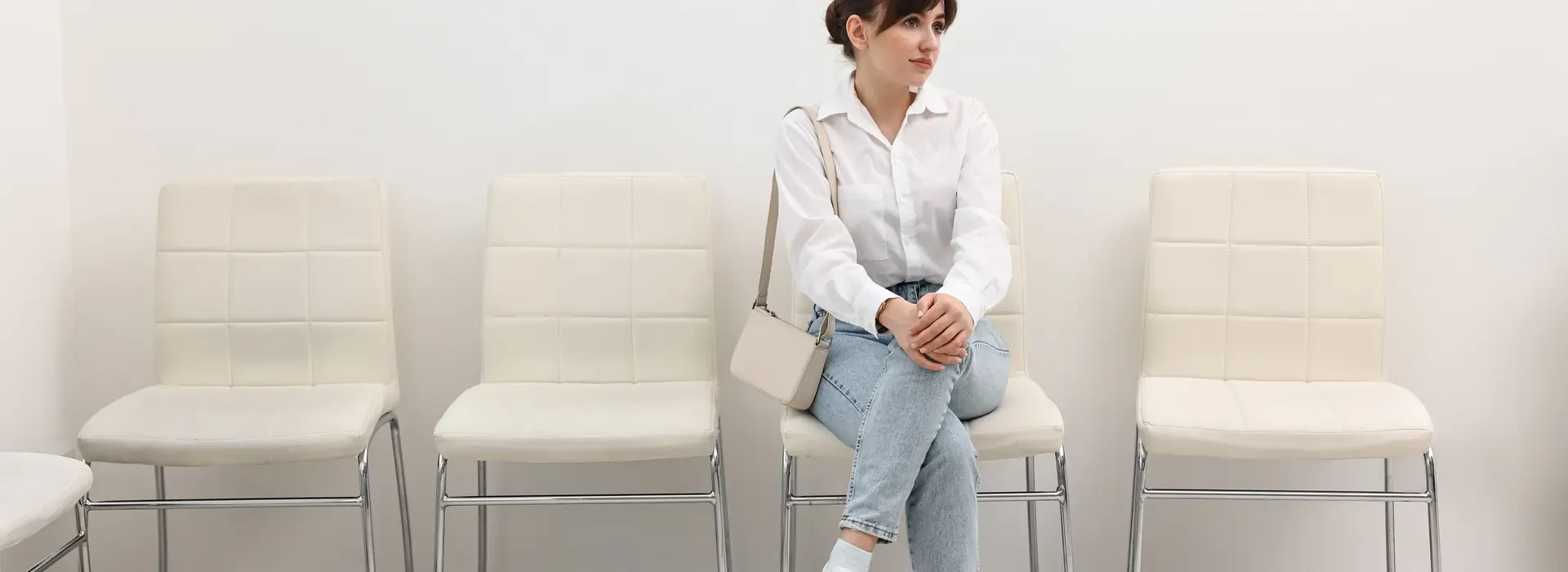Benzodiazepines are prescription drugs that are used to depress the central nervous system. These drugs are often used to treat anxiety, muscle spasms, and seizures. Valium, Ativan, and Klonopin are some of the most popular brand-name benzodiazepines available, and the use of benzodiazepines is increasing in many parts of the United Kingdom.
However, while these drugs can be medically useful, there are instances in wherein a person can become dependent and eventually develop an addiction. Benzo detox programmes are designed to help you safely stop using benzodiazepines with medical support and careful supervision.
What Are Benzo Detox Programmes?
Benzo detox programmes help you stop using benzodiazepines safely. They offer medical support, manage withdrawal, and guide you through early recovery.
Overview of Benzodiazepine Dependence
Benzodiazepine dependence happens when your body gets used to the presence of these medicines. These drugs are often used to treat anxiety, sleep problems, or seizures. Over time, you may need more to get the same effect, or you might notice withdrawal symptoms if you miss a dose.
Dependence can affect both your physical and mental health. You might start experiencing memory problems, mood swings, and trouble with daily activities. Relationships, work, and hobbies can suffer. Long-term use increases the risk of serious health issues.
If you feel unable to stop benzodiazepines on your own, this is a sign of dependence. Professional help is often needed to stop safely, as withdrawal can lead to severe symptoms like anxiety, confusion, tremors, and even seizures. A managed detox programme lowers these risks and gives you a better chance at long-term recovery.
Goals of Detoxification
The main goal of a benzo detox programme is to clear the drug from your system in a safe, controlled way. Detox also helps you manage any uncomfortable or unsafe withdrawal symptoms. Programmes often use a tapering method, slowly lowering your dose to reduce the risk of withdrawal.
Besides clearing your body of benzodiazepines, detox aims to prepare you for other forms of treatment. Effective programmes also provide support for your mental health and offer therapies to help you understand your addiction.
Difference Between Medical and Non-Medical Detox
Medical detox uses healthcare professionals to manage your withdrawal and protect your safety. Doctors create an individual plan. Staff monitor your health and adjust your tapering schedule as needed. Medicines may be given to ease symptoms. Medical detox is safest, especially if you have a long history of use or other health concerns.
Non-medical detox means stopping benzodiazepines outside of a clinic or hospital. Medical supervision is strongly recommended because of the risks linked with benzo withdrawal. Stopping suddenly, or without proper medical help, can lead to severe or even life-threatening reactions.

How Benzodiazepine Detox Programmes Work
Benzo detox programmes use a structured approach to help you safely stop taking benzodiazepines. Medical professionals guide the whole process, from making a plan that fits your needs to keeping you safe throughout withdrawal.
Assessment and Personalised Planning
Your journey begins with a thorough assessment. Medical staff ask about your health, benzodiazepine use, mental well-being, and any other medications you take. This step helps identify risks and any special needs you might have. You may have blood tests, a psychological exam, and a review of your medical history.
This assessment helps create a personalised treatment plan. Healthcare workers work with you to set clear goals and expectations. Plans can change as you progress so that you receive care that fits your situation best. A strong start helps make the rest of the detox process safer and more effective.
Tapering Methods and Medication Management
Stopping benzodiazepines suddenly can be dangerous. Some benzo detox programmes use a gradual dose reduction, also called tapering. This means your dose is slowly lowered, which lowers the chance of severe withdrawal symptoms. Doctors may substitute your current medication for a longer-acting benzodiazepine, as these are easier to taper.
Adjustments are made based on how your body reacts. If you feel unwell, the plan can be changed to reduce discomfort and risk. Other medicines can help manage symptoms like anxiety, trouble sleeping, or nausea. Staff review your progress often and change treatments as needed.
Monitoring and Safety Protocols
Throughout a benzo detox, you are closely monitored by trained professionals. Staff check vital signs like heart rate, blood pressure, and temperature several times a day. You may experience a variety of benzodiazepine withdrawal symptoms, such as sweating, insomnia, or headaches.
However, psychosis and seizures are possible benzo withdrawal symptoms. If any medical emergencies happen, care is provided quickly. Safety procedures help reduce health risks that can occur during withdrawal, especially if you have been taking high doses or using benzos for a long time. You also get support for mental health, including talking therapies or group sessions.

Benzo Rehab for Benzo Addiction
Reliable benzo detox programmes offer structured care, tailored support, and comprehensive planning. Safe withdrawal and long-term recovery depend on proper medical supervision and ongoing help from trained professionals.
Therapeutic Support and Counselling
Strong emotional support is key during detox. Effective programmes include regular one-on-one and group therapy with trained counsellors. These sessions allow you to express your fears and develop healthy coping skills. Cognitive behavioural therapy (CBT) is often used to help you recognise triggers and change unhelpful thought patterns.
You might also take part in family or peer group counselling to strengthen your personal support network. Open, honest communication with your care team encourages trust and makes it easier to discuss setbacks. This therapeutic structure keeps you accountable and improves your chances of overcoming benzodiazepine dependence.
Primary Care
Detox is only the first step in benzodiazepine addiction treatment. Primary care, also known as inpatient treatment, involves you living in a rehab centre for a few weeks. In this centre, you’ll receive a variety of supportive approaches that are meant to help you overcome drug and alcohol addiction.
Rehab programmes can include a mix of therapies, most notably cognitive behavioural therapy, which can help you identify the beliefs and thought patterns that contribute to drug use. Other treatment options used in primary care include individual and group therapy.
Aftercare and Relapse Prevention
Finishing detox and rehab is only part of a recovery journey; aftercare planning helps maintain your progress. Good programmes provide an ongoing support plan that may include scheduled check-ins, outpatient therapy, or support group meetings. Relapse prevention strategies are tailored to your personal needs.
These may include learning new stress management techniques and having someone to call for help if cravings return. You might receive referrals to comprehensive recovery support services or ongoing counselling. Consistent aftercare helps you stay on track and lowers the risk of returning to benzodiazepine use.
Detox is the First Step in Addiction Treatment
A benzo detox programme is only one part of rehab treatment and recovery from benzo abuse. Getting clean isn’t a full treatment. But it is an important step in recovery, and one that should ideally be taken under medical supervision.
At Liberty Home, we provide comprehensive treatment for benzo use, and we work with a nearby medical facility to help you detox from benzos safely. Addiction doesn’t have to be a permanent condition, and we’ll help you make sure that yours isn’t.
Frequently Asked Questions
What are the typical stages involved in a benzodiazepine detoxification programme?
Detox usually begins with an assessment to check your health and decide on a suitable tapering plan. Doses are then gradually reduced over weeks or months. Medical monitoring during this time helps manage your symptoms and keeps you safe.
How long does the detoxification process for benzodiazepines usually take?
Detoxification is not quick and can take several weeks to a few months. The exact length depends on factors such as which benzodiazepine you used, how long you have taken it, and your health. In some outpatient programmes, the acute withdrawal process may be completed in as few as 8 days, but longer, slower tapers are usually recommended for safety.
Can withdrawal from benzodiazepines be managed at home, or is a specialised facility recommended?
Some people can manage withdrawal at home under a doctor's supervision, but this is not suitable for everyone. If you have taken benzodiazepines for a long time, have a high dose, or have health problems, you may need a specialised detox clinic for closer medical support.
What are the common withdrawal symptoms encountered during benzodiazepine detox?
You may have symptoms such as anxiety, trouble sleeping, irritability, restlessness, and sweating. Physical effects like headache, muscle pain, and nausea are also common. More severe withdrawal can include confusion, seizures, or hallucinations, especially if you stop suddenly. This is why medical supervision is important for most people.
Are there any medications that can aid in reducing withdrawal effects from benzodiazepine dependence?
Doctors may use a slow taper by switching to a longer-acting benzodiazepine and then reducing the dose gradually. Other medicines can help with withdrawal symptoms, such as sleep aids or drugs for anxiety, but there is no single medication that fully prevents withdrawal.
What kind of support services are available post-detox to prevent relapse?
Support after detox includes one-to-one counselling, group therapy, and peer support groups. Some people get help from relapse prevention programmes or helplines. Ongoing mental health support may also be needed to manage anxiety or sleep problems that led to benzodiazepine use.







